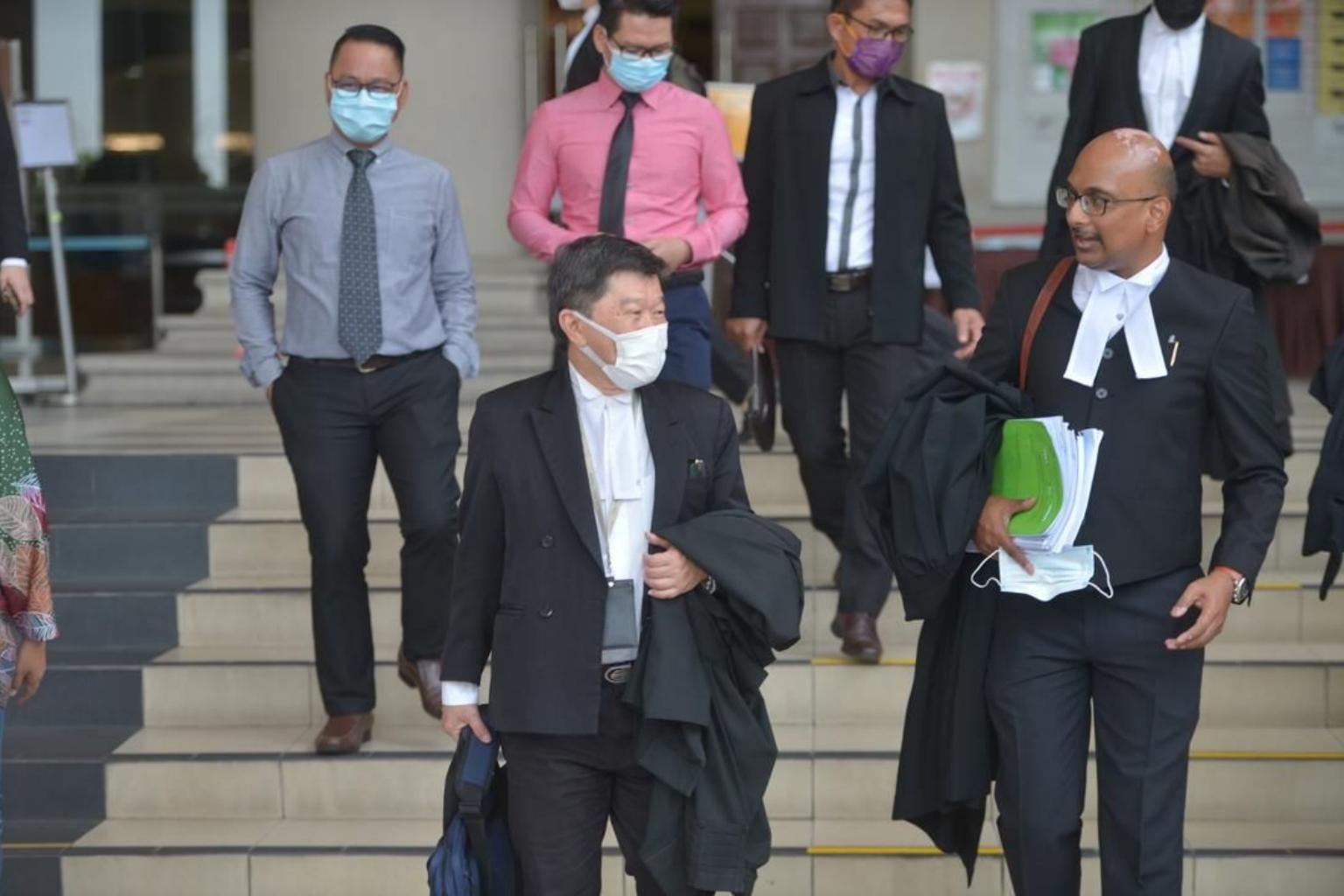CSOs’ Joint Statement on the universal use of Allah
18 March 2021
Government should withdraw appeal. Let’s accept the lift of Allah ban and move on. We the undersigned Civil Society Organisations (CSOs) urge Prime Minister Tan Sri Muhyiddin Yassin to withdraw the Government’s appeal against the High Court’s decision on 30 March to allow all Malaysians to use the word Allah, the Arabic word for the God borrowed by Bahasa Malaysia, Bahasa Iban, Bahasa Bidayuh, Bahasa Lun Bawang/Lun Dayeh/Kelabit and Bahasa Punjabi.
We call upon the Government and People of Malaysia to seize the High Court’s decision as the closure of the 35-year-old polemic since the Federal Cabinet’s decision to ban its universal use. All political parties should not exploit the High Court’s decision for narrow political mileage.
Many Peninsular Muslims suspect that Christians praying in Bahasa Malaysia and to Allah, a
phenomenon increasingly noticeable since 1980s, is a deliberate attempt to convert Muslims.
In reality, Christians who recite Allah in prayers are predominantly Sabahans, Sarawakians and Orang
Asli. Muslims in Sabah and Sarawak, many of whom have Christians families and friends, are
comfortable and not alarmed by Christians praying to Allah, just like Muslims in Indonesia and the Arab world.
That suspicion against Christians praying to Allah is actually a cultural shock experienced by Peninsular Muslims and the natural outcome of two phenomena, first, the success of the National Language Policy which reversed the decline of Bahasa Malaysia amongst natives in Borneo; and, second, the closer integration of East and West Malaysia as more Sabahans and Sarawakians migrate to the Peninsula for education and employment.
As a response of the cultural shock, the ban on universal use of Allah by the Federal Cabinet in 1986 stemmed from concern of the Muslim community fearing itself becoming the target of aggressive proselytization, incidentally a common concern of all other religious communities.
Underlying such cultural shock is the ignorance that Christians in Nusantara have been praying to Allah in Bahasa Melayu, Bahasa Iban, Bahasa Bidayuh, Bahasa Lun Bawang/Lun Dayeh/Kelabit and some other regional languages for as long as 476 years.
No party should provoke and spread unfounded fear that Christians praying to Allah would lead to
Muslims’ apostasy. The undisputed fact is that Muslims constitute near or more than 90% of population in Arab countries and Indonesia, even though Muslims and Christians have shared the word Allah and other religious terms for 1,442 and 476 years respectively.
The High Court’s decision is but restoring the pre-1986 status quo and undoing a restriction on Sabah, Sarawak and Orang Asli Christians on an unfounded threat felt by many Peninsular Muslims but not shared by Sabah and Sarawak Muslims.
The High Court’s decision should be viewed positively for two grounds. First, it would strengthen Malaysia when Christians in Sabah and Sarawak can freely pray to Allah as their Christian cousins in Indonesian Kalimantan do. Second, it is reaffirming the status of Bahasa Malaysia as the national language for all.
Initiated by Engage and Pusat KOMAS (KOMAS), this statement is endorsed by a total of 65 civil society organisations representing different states, communities and sectors:
1. Advancing Knowledge in Democracy and Law initiative (AKDL)
2. Advocates for Non-Discrimination and Access to Knowledge (ANAK)
3. Agora Society Malaysia
4. Aliran Kesedaran Negara (ALIRAN)
5. All Women Action Society (AWAM)
6. Association of Women Lawyers
7. Belia di Bawah Bayu, Sabah
8. Beyond Borders Malaysia
9. Centre for Independent Journalism (CIJ)
10. Childline Foundation
11. Community Action Network (CAN)
12. Engage
13. Freedom Film Network (FFN)
14. G25
15. Gerakan Mahasiswa Maju UPM
16. Global Organisation of People of Indian Origin (GOPIO Malaysia)
17. Good Samaritan Kuala Lumpur
18. Growing and Emerging Leaders (GEL)
19. Jagoi Area Development Committee (JADC)
20. Jaringan Kampung Orang Asli Semenanjung Malaysia (JKOASM)
21. Jaringan Orang Asal SeMalaysia (JOAS)
22. Justice for Sisters
23. Kuala Lumpur & Selangor Chinese Assembly Hall (KLSCAH)
24. LLG Cultural Development Centre (LLG)
25. Malaysian Action for Justice and Unity (MAJU)
26. Malaysia First
27. Merdeka University Berhad
28. Muslim Professional Forum (MPF)
29. New Student Movement Alliance of Malaysia
30. North South Initiative
31. Oriental Hearts and Mind Study Institute (OHMSI)
32. Our Journey
33. PACOS Trust
34. Pasukan Pembela Hak Rakyat Sabah (PEMBELA)
35. People Like Us Support Ourselves (PLUsos) 36. Pergerakan Tenaga Akademik Malaysia (GERAK)
37. Persatuan Dayak Sarawak (PEDAS)
38. Persatuan Masyarakat Tering (PmTm) Miri.
39. Persatuan Pemangkin Daya Masyarakat (R. O. S. E)
40. Persatuan Penduduk Galing Besar Kuantan
41. Persatuan Promosi Hak Asasi Manusia (Proham)
42. Persatuan Sahabat Wanita Selangor
43. Persatuan Wanita Desa Sarawak (WADESA)
44. Persekutuan Persatuan-Persatuan Lembaga Pengurus Sekolah Cina Malaysia (Dong Zong)
45. Pertubuhan Paradigma Wanita Sabah (AWAS)
46. Pertubuhan Solidariti Hijau Kuantan
47. Protect & Save the Children
48. Pusat KOMAS (KOMAS)
49. Sabah Human Rights Centre
50. Sabah Reform Initiative (SARI)
51. Sabah Women’s Action-Resource Group (SAWO)
52. Sahabat Rakyat 人民之友 மக்கள் த ோழர்கள்
53. Sarawak Association for Peoples Aspirations (SAPA)
54. Sarawak Women for Women Society
55. Saudara Socio-Cultural Research
56. SAVE Rivers
57. SCRIPS Malaysia
58. Sisters in Islam (SIS)
59. Society for Equality, Respect And Trust for All Sabah (SERATA)
60. SUARAM (Suara Rakyat Malaysia)
61. TENAGANITA
62. Teoh Beng Hock Trust for Democracy
63. To Earth with Love, Sabah
64. Undi Sabah
65. University of Malaya Association of New Youth (UMANY)
66. Voice of Youtharian
67. Voice Your Choice
68. WISDOM Foundation, Sabah
69. Women Aid Organisation (WAO)

Image Source: The Straits Times

 中文
中文 BM
BM